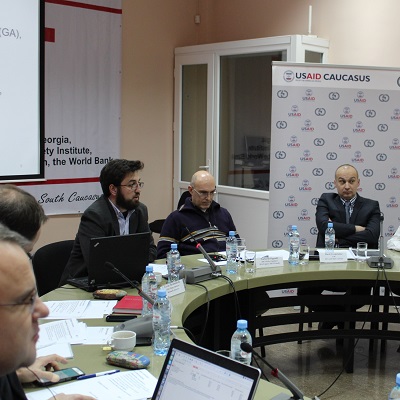On January 20th, the ISET Policy Institute presented the final results of its regulatory impact assessment (RIA) regarding the draft methodology of irrigation/drainage tariffs. The goal of the workshop was to present and receive feedback from major stakeholders on final results of the RIA. The effort of different research centers of ISET Policy Institute have also contributed to the study since mid-November 2015.
The RIA offers the initiative an independent economic analysis of different methodological options for setting amelioration tariffs around the country. At this stage amelioration sector operates with tariffs set under the interim decree of Georgian National Energy and Water Supply Regulatory Commission (GNERC). The Commission sets fixed tariffs per hectare for major irrigation/drainage service provider in the country, state owned, Ltd. Georgian Amelioration.
The tariffs are set without any methodological background and do not necessarily reflect the company’s true costs to provide services to farmers. Therefore, developing new regulatory framework is essential for the further development of the sector. The comprehensive economic analysis team of ISET Policy Institute identified pros and cons of different options as well as potential risks that could be encountered during their implementation.
The RIA’s results were presented at the workshop to major stakeholders and other interested parties: Ltd. Georgian Amelioration, Georgian Farmers’ Association, Ministry of Agriculture of Georgia, Ministry of Finance of Georgia, World Bank – Irrigation and Land Management Development Project, USAID and its Governing for Growth (G4G) project that developed the draft tariff methodology. The presentation was followed by a discussion, in which the participants were invited to reflect on the results of RIA. After an active discussion workshop participants agreed that this study was an important step forward to achieve the final decision.
The Regulatory Impact Assessment (RIA) project has been commissioned with the grant of USAID Governing for Growth (G4G) project.











